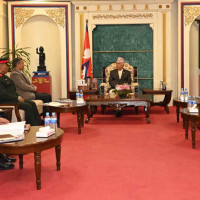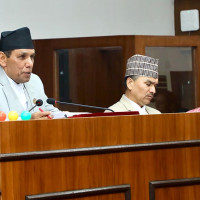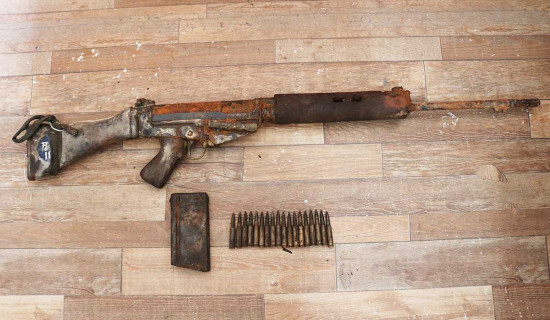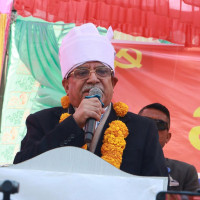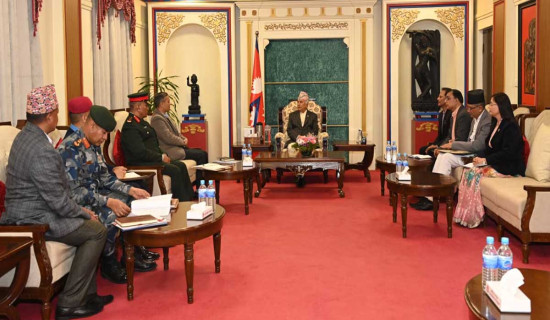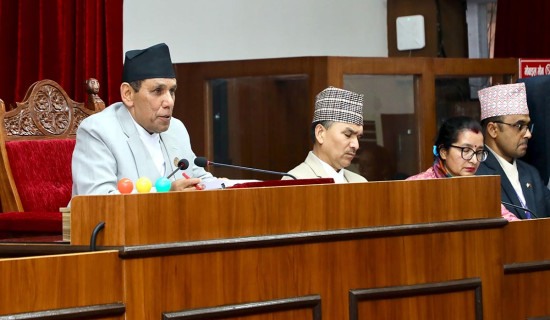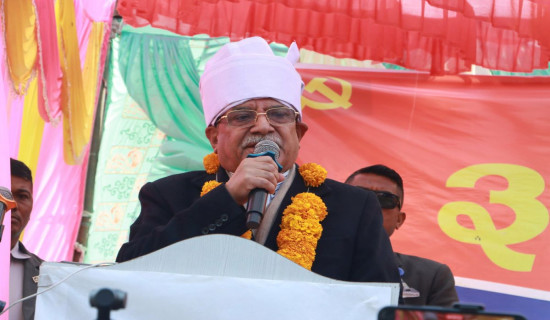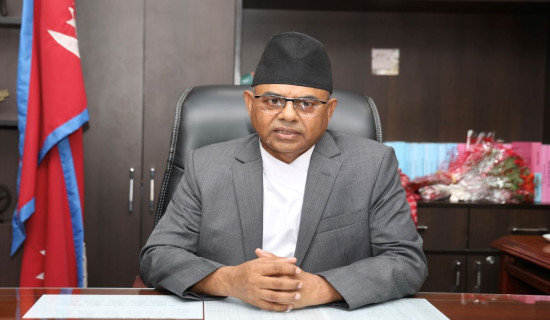- Saturday, 14 February 2026
Millet farming expanded in rural parts of Myagdi
Galeshwor (Myagdi), Nov 10: Once considered a rustic food, Millet has become a preferred food item in urban areas in recent years. This growing urban demand has led to an increase in millet cultivation in the rural regions of Myagdi.
Farmers in Malika, Mangala, and Dhawalagiri—villages in western Myagdi—have increasingly embraced millet farming, particularly after city traders began visiting these villages in private vehicles to purchase the grain.
Rana Bahadur Shirpali, a farmer from Malika Rural Municipality-2, shared that suppliers now visit before harvest time and offer advance payments.
In Upper Darbyang and Dichyam in Malika rural municipality-6, millet farming has become particularly prominent. Last year, farmers in these areas produced more than 200 muri (approximately 64 kg per muri) of millet, and this year, they aim to increase production to 350 muri, according to Bir Bahadur BK from Dichyam.
The area under millet cultivation has expanded by 120 ropani (about 508.74 square meters) in the region.
The demand for millet in urban centres has been so high that land that had previously been barren is now being used for millet farming, according to Shobha Pun, a farmer from Dhawalagiri rural municipality. She said that she hired workers to cultivate the crop for two days and expects to harvest seven to eight muri of millet this season.
Millet is known for its high nutritional value. According to nutrition experts, it is rich in calcium, magnesium, phosphorus, vitamin B, tryptophan, fibre, and antioxidants. Millet is especially recommended for weight management, heart health, strong bones, and digestive health.
The Agricultural Knowledge Center estimates that millet production in Myagdi will increase by 0.65% this year compared to the previous season. Sanjeeb Bastola, the centre's chief, attributed this growth to favourable climatic conditions, the absence of major insect infestations, and the smooth supply of chemical fertilizers. Last year, Myagdi produced a total of 2,250 metric tons of millet.
The farming takes place in 19,498 hectares of land, out of 30,856 hectares of arable land, in the district comprising one municipality and five rural municipalities. (RSS)




